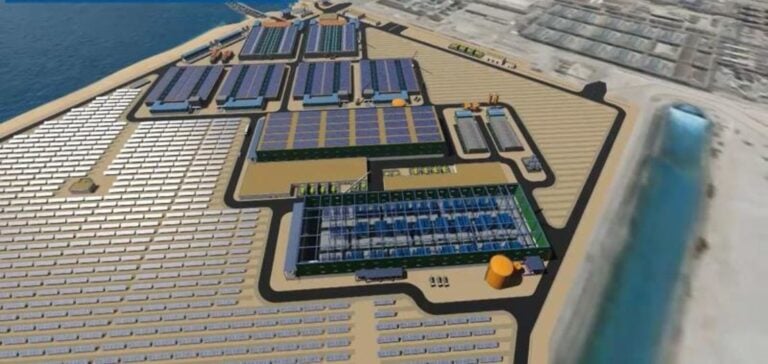Emirates Water and Electricity Company (EWEC) recently issued a tender for the development of the Taweelah C project. This combined-cycle gas turbine (CCGT) power plant project, located in the Al Taweelah complex, aims to enhance energy security while supporting the transition to renewable energies in the United Arab Emirates (UAE).
A strategic project for decarbonization
The Taweelah C project is distinguished by its carbon capture-ready gas turbine technology, designed to provide crucial transitional capacity.
The plant will play a key role in the large-scale integration of renewable energies, providing additional flexibility during periods of high energy demand.
Othman Al Ali, CEO of EWEC, emphasizes the importance of this project to Abu Dhabi’s decarbonization strategy.
“EWEC’s strategic planning and deployment of new technologies is catalyzing a significant transformation towards a diversified and sustainable energy mix. Natural gas will be a key transition fuel to achieve Abu Dhabi’s 2035 decarbonization goals.”
Proven IPP model and partnership
The Taweelah C project follows Abu Dhabi’s proven IPP (Independent Power Producer) model.
Developers will enter into a long-term agreement with EWEC, involving the development, financing, construction, operation, maintenance and ownership of the plant.
Successful developers or consortia will own up to 40% of the entity, with the remainder held indirectly by the Abu Dhabi government.
Scheduled to enter commercial operation in the third quarter of 2028, the Taweelah C power plant will generate up to 2.5 gigawatts (AC) thanks to its efficient natural gas turbine technology.
Outlook and expectations
The published tender offers bidders detailed requirements and technical parameters to help them develop their proposals.
Responses are expected in the fourth quarter of 2024.
This project is a major step in the UAE’s energy transition, offering both increased flexibility and reduced carbon emissions.
In sum, the Taweelah C project represents a central pillar in Abu Dhabi’s decarbonization strategy, illustrating the UAE’s ongoing commitment to a sustainable and secure energy future.






















